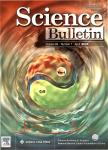Cloning,sequencing and expression analysis of cDNA encoding a constitutive heat shock protein 70 (HSC70) in Fenneropenaeus chinensis
Cloning,sequencing and expression analysis of cDNA encoding a constitutive heat shock protein 70 (HSC70) in Fenneropenaeus chinensis作者机构:InstituteofOceanologyChineseAcademyofSciencesQingdao266071China//DepartmentofBiologyDezhouCollegeDezhou253023China//GraduateSchoolofChineseAcademyofSciencesBeijing100039China InstituteofOceanologyChineseAcademyofSciencesQingdao266071China
出 版 物:《Chinese Science Bulletin》 (CHINESE SCIENCE BULLETIN)
年 卷 期:2004年第49卷第22期
页 面:2385-2393页
核心收录:
学科分类:0710[理学-生物学] 07[理学] 0905[农学-畜牧学] 09[农学] 071007[理学-遗传学] 090501[农学-动物遗传育种与繁殖] 071002[理学-动物学]
基 金:Chinese Academy of Sciences,CAS: ZKCX 2-2II National High-tech Research and Development Program: 2003AA603440,200lAA62II20 National Key Research and Development Program of China,NKRDPC: GI999012007
主 题:无性繁殖 cDNA 表达方式 编码 热震动蛋白质70 HSC70 虾
摘 要:The cDNA encoding hsc70 of Chinese shrimp Fenneropenaeus chinensis was cloned from hepatopancreas by RT-PCR based on its EST sequence. The full length cDNA of 2090 bp contained an open reading frame of 1956 nucleotides and partial 5′- and 3′-untranslated region(5′- and 3′-UTR). PCR amplification and sequencing analysis showed the existence of introns in the region of 1-547 bp, but they did not exist in the region of 548-2090 bp of hsc70 cDNA. When the deduced 652 amino acid sequence of HSC70 was compared with the members of HSP70 family from other organisms, the results showed 85.9% similarity with HSC71 from Oncorhynchus mykiss and HSC70 from Homo sapiens. It also exhibited 85.8% similarity with HSP70 from Mus musculu and 85.4% with HSC70 from Manduca sexta. Ex- pression analysis showed that hsc70 mRNA was espressed constitutively in hepatopancreas, muscle, eyestalks, haemo- cytes, heart, ovary, intestine and gills in Fenneropenaeus chinensis. No difference could be detected on hsc70 mRNA level in muscle between heat-shocked and control animals.



